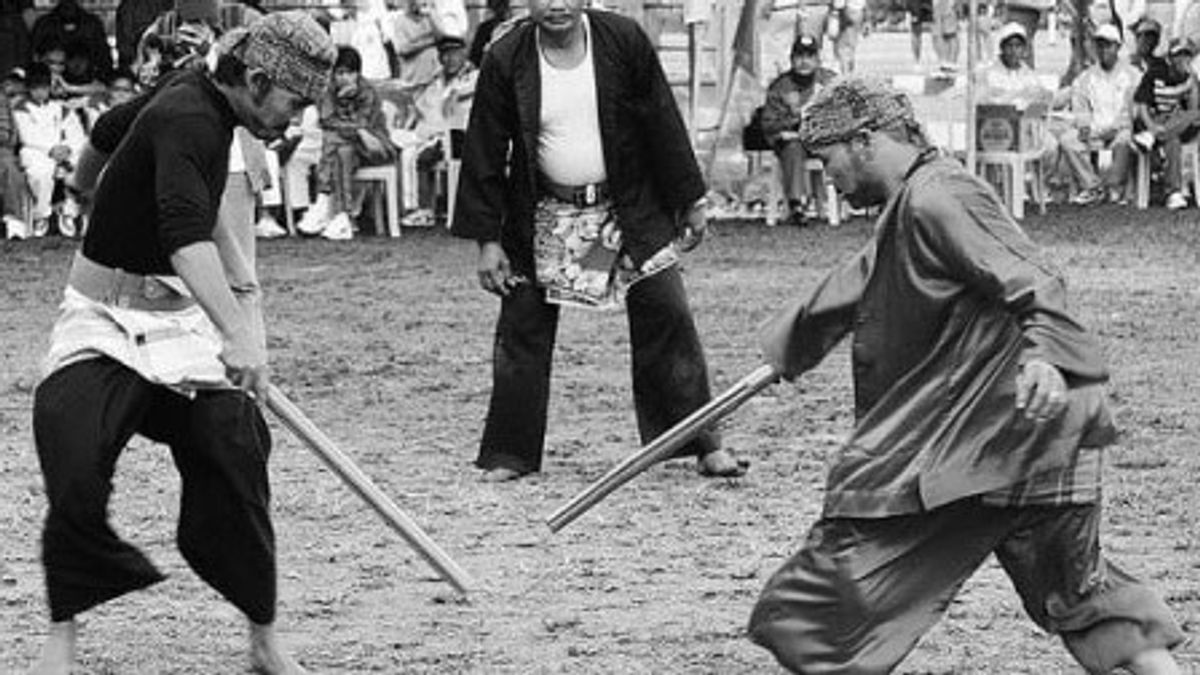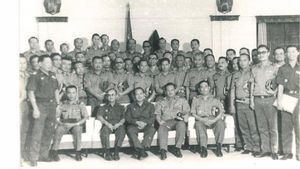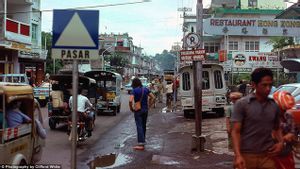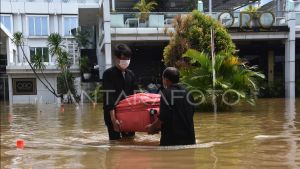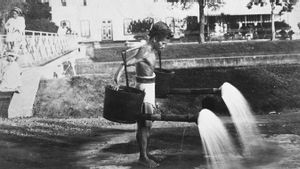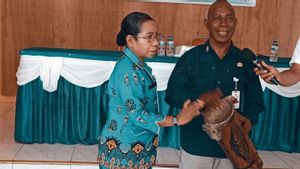JAKARTA - Farming and farming have been the profession of the majority of Betawi people in the past. They perpetuate their lifestyle in growing crops everywhere. Instead, these activities are only perpetuated near rivers, farming and farming are also carried out far from the river.
The water also relies on rainwater. Problems arise when the rain doesn't come, especially in the long dry season. However, the Betawi people do not stand idly by. They perpetuate the ritual of calling ancestral rain. Ujungan tradition, his name.
Live farming and farming have been done by Betawi people since time immemorial. This narrative has made many traditions develop in this agrarian life. Doing farming is not much different when the Dutch trading airline, the VOC came and built the City of Batavia (now: Jakarta) from 1619.
The work was not abandoned. Even though the lands are controlled by the Company and sold to the rich. The rich Dutch, Arabs, and Chinese. Betawi people continue to regularly farm and farm, even though the consequences are that they have to pay taxes to the Dutch assigned Demang ( bumiputra employees).
This activity continued until the Company was replaced by the colonial government of the Dutch East Indies. Profession as a farmer is still a mainstay. In fact, perpetuating the work is not easy. Sometimes they are forced to get cheap wages. Sometimes, taxes that come are so strangled.
The problem created rebellions everywhere. The peasants faced off against Dutch temples. However, the profession continued to last. Many of the Betawi people chose to farm near the river.
Many also choose to farm far from the river. They rely on rainwater to irrigate their rice fields or fields. This condition has been going on for generations.
Betawi people who live in wet soil generally work as farmers. In areas close to the river, farmers can take advantage of river water to irrigate their rice fields, but those that are far from the flow of water depend on the water from the rainwater.
Therefore, the rice fields are called rain fields. Rice fields that can be irrigated from the river can be harvested twice a year, while the rice fields only harvest once a year. Then, the remaining time is used to plant crops. In this case, well water is used to water the crops," said Abdul Chaer in the book Betawi Tempo Doeloe (2015).
Farming and farming activities make Betawi people depend on rain. Once it rains rarely, all Betawi people will be hit by panic. Moreover, when a long dry season hits. This condition did not make Betawi people just surrender.
They refused to stand on their laps. Betawi people actually chose to perpetuate the tradition of calling rain in Betawi. The Ujungan tradition (the trigger at the end), the name. Ujungan is considered a tradition of beating arts using rattan accompanied by music. Ujungan is considered complete entertainment because it combines a lot of art: playing punches, dance, and music.
The dominant musical instruments used are sampyong and tok-tok percussions. Those who perpetuate it are the heroes, champions, or Betawi heroes who use their respective batons (Tagawi training centers). A battle was fought one on one.
As a test of dexterity, he said. The Ujungan tradition is usually present in areas where notabene has the life of garden farmers and rain fields. From East Jakarta to Bekasi.
Betawi people also choose the location of Ujungan in the dry rice fields due to the long dry season. The tradition of Ujungan being held by spectators who come is always crowded. Even though there is no official record of when this tradition of calling rain begins.
If it doesn't rain for a long time, the fields and fields are dry, because most of the rice fields in Bekasi Utama are rain fields. If traced, the function of Ujungan in the context of calling for rain by providing blood sacrifices, in line with the art of similar dexterity in other areas. Victim ritual activities to ask for something from the Creator.
The tradition of Ujungan which then often bleeding is a manifestation of the concept of sap-getih and tabahrah that Indonesians have done during the pre-Hit Hindu period. This can be seen from the art of similar games from the cultures of the archipelago that have a common thread, the existence of two elements, namely the ritual of asking for rain and blood sacrifices, such as the art of Magebug in Bali, "explained GJ Nawi in the book May Blow: Pencak Silat Khas Betawi(2016).
Betawi culturalist, Masykur Isnan actually sees the Ujungan tradition as wider. He considered this tradition as a form of effort for Betawi people at the time before to call for rain. This tradition is not only known to have a mere blow. Because, the value of friendship is clearly contained in it.
It could be that the rules for participants who get a lot of shots are winners. While the few who are the losing side. However, winning to lose is not the only goal. The match will add to the closeness of each other.
All because in the tradition of playing punches, usually those who lose teachers to the winners. This means that Ujungan tradition is fully considered as the art of people's performances and entertainment, but by upholding high sporting value. Even the rain was considered a bonus.
SEE ALSO:
Now Ujungan's tradition of calling for rain is gone, but as a cultural attraction it is still ongoing, although rare. Masykur assessed the loss of Ujungan to ask for rain that boils down to limited agricultural land. This fact forced many Betawi people to be forced by the authorities -- without compromise -- to leave the land and its livelihoods.
The Betawi community used to live a lot in the agricultural sector. This affects the Betawi culture. One of them that is rarely seen is Ujungan which is thick with the value of dance, silat, and music. In the past, this tradition was intended to call for rain in the long dry season.
The payment in this context is an overview of the efforts of the Betawi community in seeking a life, which is actually an agarist society. In addition, Ujungan can prove that local wisdom has a high value. Therefore, it is necessary to have joint sensitivity and concern to revive this Betawi tradition," explained Masykur Isnan when contacted by VOI, August 29.
The English, Chinese, Japanese, Arabic, and French versions are automatically generated by the AI. So there may still be inaccuracies in translating, please always see Indonesian as our main language. (system supported by DigitalSiber.id)
